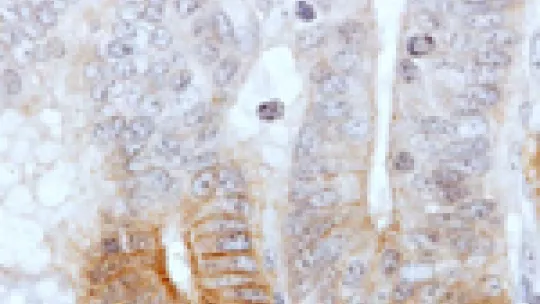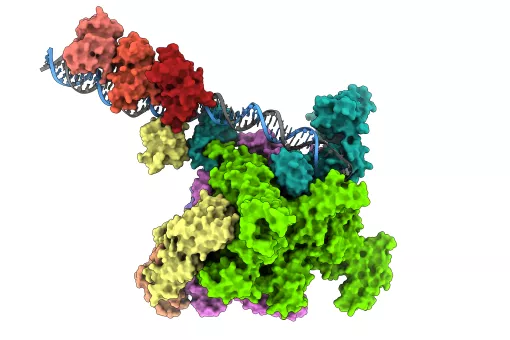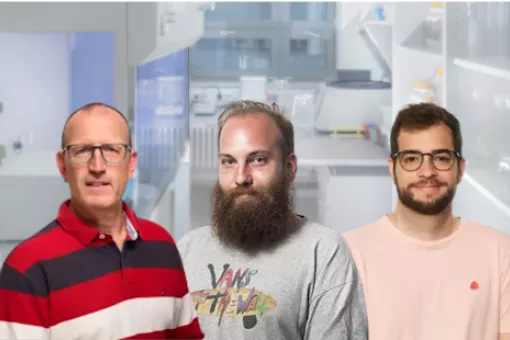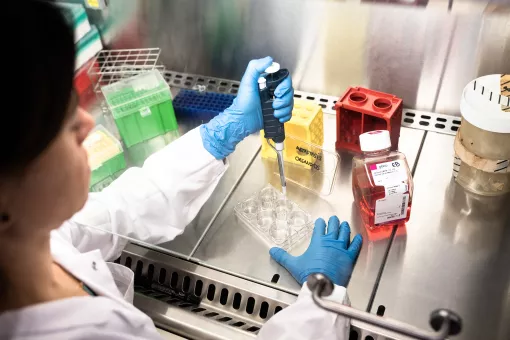Images
Scientists at IRB Barcelona report new data in support of link between stem cells and cancer, opening door to new tools for diagnosis and treatment.
Colorectal cancer cells trigger a set of genes similar to those found in intestinal stem cells, scientists at the Institute for Research in Biomedicine (IRB Barcelona) have found. The team of researchers, led by ICREA researcher Eduard Batlle, propose that patients with colorectal cancer undergo genetic tests of their intestinal epithelium in order to predict a higher risk of relapse. The results of the study, published online this week in Cell Stem Cell, offer new possibilities for diagnosing and treating the disease.
Colon cancer is the second cause of death by cancer worldwide. Current treatment for the disease normally involves a combination of surgery and chemotherapy. Most patients who are treated successfully go into remission, but nearly 40% relapse within months or years, when the cancer returns or metastasizes. “This shows us that there are cells within the tumour that regenerate the disease,” says Batlle, “but we still know very little about the biological reasons why.”
Cancer’s “hard core”
The study conducted by Anna Merlos-Suárez and other researchers in Batlle’s team has uncovered a close relation between intestinal stem cells (non-specialised cells that generate all cells within the intestine) and colorectal cancer. The researchers compared genes that are activated in cells from a healthy intestine – both stem cells and specialised cells – with the genes that are activated in tumour cells taken from patients. “Our results show that patients with colon cancer have a set of genes activated that is very similar to the set activated in stem cells. The more genes they have activated in common, the more likely it is that the patient’s cancer will spread and relapse.
These stem cell genes become activated in a subset of cells in the tumour, called “tumour stem cells”. When Batlle’s team transplanted these cells into mice, tumours formed. Their results add to the growing hypothesis that cancer organizes itself hierarchically, in such a way that only specific cells, “tumour stem cells”, are able to initiate and propagate the cancer.
What is it about stem cells that allows them to promote cancer? By definition, stem cells renew tissues, including in this case the intestinal epithelium, and can produce up to 5 grams of intestinal epithelial cells each day. Scientists believe that tumours may exploit the capacity of these cells to renew indefinitely in order to grow and spread. Furthermore, while the majority of cells have an average lifespan of days, as in the case of intestinal epithelial cells, or even months, stem cells survive for many years, increasing the probability that their DNA will accumulate damage and that they will turn cancerous.
One of the biggest hurdles that oncologists face is a lack of tools to identify which patients have a higher risk of relapse. Discovering a close relation between intestinal stem cells and the propagation of cancer is a clear breakthrough in this respect. The hypothesis that colorectal cancer requires a specific type of cell to develop and thrive has also been demonstrated in other types of cancer, including gliomas, some types of lymphoma or breast cancer. This finding opens the door for the development of treaments aimed at these new targets in the fight against cancer: tumour stem cells.
Reference article:
The intestinal stem cell program predicts colorectal cancer relapse and identifies tumor stem cell niches
Anna Merlos-Suárez, Francisco M. Barriga, Peter Jung, Mar Iglesias, María Virtudes Céspedes, David Rossell, Marta Sevillano, Xavier Hernando-Momblona, Victoria da Silva-Diz, Purifi cación Muñoz, Hans Clevers, Elena Sancho, Ramón Mangues and Eduard Batlle.
Cell Stem Cell (2011) [doi: 10.1016/j.stem.2011.02.020]
About IRB Barcelona
The Institute for Research in Biomedicine (IRB Barcelona) pursues a society free of disease. To this end, it conducts multidisciplinary research of excellence to cure cancer and other diseases linked to ageing. It establishes technology transfer agreements with the pharmaceutical industry and major hospitals to bring research results closer to society, and organises a range of science outreach activities to engage the public in an open dialogue. IRB Barcelona is an international centre that hosts 400 researchers and more than 30 nationalities. Recognised as a Severo Ochoa Centre of Excellence since 2011, IRB Barcelona is a CERCA centre and member of the Barcelona Institute of Science and Technology (BIST).





